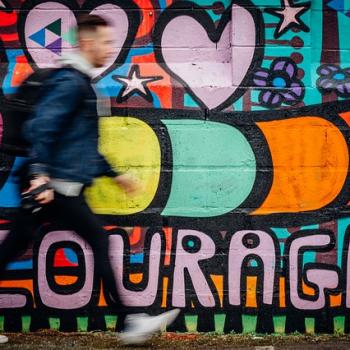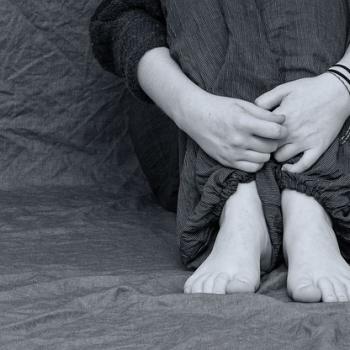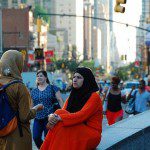By M. Salman Ravala
As the sun sets to finish the last few days of Ramadan, Islam’s holiest month, Muslims around the world should reflect–have we achieved our goals of service and fellowship? Have we achieved a renewed faith in our community? Are we agents of change in a world filled with oppression and strife? During the holy month, Muslims worldwide engage in practices of deep devotion, personal self-reflection, and prayer. Through disciplined fasting and worship, Ramadan enlivens our sense of personal responsibility and increases our faith. We engage joyfully in sadaqa h (charity) and acts of public service. We spend time in spiritual fellowship with friends, and bonding with our immediate families. Our community is strengthened as we honor the rituals of Ramadan. Finally, we hope for insight that our community is strong, not only in faith, but in intellect and fortitude.
Because our conscientious observance of Ramadan encourages sincere contemplation, peace, and brotherhood, we know we must not turn our back on either local or global current events. Tragic headlines detail daily the bloody conflict in Egypt and Syria between extremists and those seeking a peaceful and democratic society. Here in the United States, this situation often reverberates as simplistic debate and inflamed rhetoric that begins on Capitol Hill and echoes through our cities, fostering stereotypes and degrading racial relations. Protests and demands for truth and equality are mantras of the disenfranchised minority, and many young Muslim activists are feeling compelled to join the rising Civil Rights movement.
As tensions escalate at home and abroad, how can we best influence progressive, productive discourse? In a world that is heavily divided along racial and religious lines, Muslim-Americans must not only pray hard, but also endeavor to provide enlightened solutions to the complex problems that manifest continually in our local communities and larger society.
There are over seven million Muslims in the United States, 40 percent being between the ages of 18 and 29. Initiatives to encourage scholarship and higher education will not only serve our local communities, but will also help the United States foster positive relationships abroad. When we acknowledge that Muslim-Americans bear the burden of progress for our local communities and beyond, we understand that we must support this advancement—with charity in general, and scholarship through education in particular.
How do we, then, overcome the obstacles and prohibitions facing our community that might limit our advancement, while forwarding the role of Muslim-American’s in a positive dialogue for non-violence and unity across the world?
The words of the esteemed South African leader and humanitarian Nelson Mandela give us insight, hope, and encouragement:
“Education is the most powerful weapon which you can use to change the world.”
In truth, the burden of substantive progress, even if it begins today as healing dialogue, is certainly the responsibility of Muslim Americans. Our community will be ultimately responsible for molding themselves into inspired leaders and advancing visionary policies within global Islam. It is up to us to see that the myriad of social, religious, and cultural challenges that exist for Muslims here in the United States are not allowed to hinder our community’s contribution towards global diplomacy and to peace.
The Muslim-American community has already begun to bring forward thoughtful, charismatic leaders who can help dispel ignorance and bridge the chasm between rigidly contrary political and religious points of view. Minnesota’s 5th Congressional district Representative Keith Ellison, the first Muslim to be elected to the U.S. Congress, has been serving his constituents since 2007. Representative Ellison, an excellent role model for the Muslim community, also acknowledges the need to evolve scholarship through educational policy and secure public school funding:
“Because an educated, informed citizenry is the cornerstone of a healthy and vibrant democracy, I believe that funding for education is the greatest single measure of our commitment to reinvest in our society.”
In the vision we share for the future, well-educated Muslim Americans will unquestionably rise to play pivotal roles as ambassadors for the United States—nurturing relationships with other Muslims countries, and showcasing America’s essential commitments to ingenuity, innovation, governance, scholarship, leadership and public service.
Proudly celebrating the significant contributions of Muslims historically in the arts, science and technology is one way we can inspire our community to excel in school, envision a better world, and rise above the challenges of modern society. The endowments of our Muslim forefathers to modern life are many and diverse. Their previous commitment to scholarship resulted in the origins of coffee and flying machines, algebra and optics, hospitals and universities. All of these can be traced back to our forbearers, who each perceived a need and conceived a transformative solution.
The award-winning international educational exhibit, 1001 Inventions, showcases the brilliance of our Muslim heritage as it travels around the world. This project was created by the Manchester, UK-based non-profit Foundation for Science, Technology and Civilization, which is overseen by an international network of respected science historians. 1001 Inventions promotes the achievements of the ‘Golden Age’ of Muslim civilization, a 1000 year period beginning in the 7th century. Millions of visitors have thus far been educated to appreciate how the bold visionaries from that shining millennium continue even today to express their ideas in the context of our modern experience.
Generations after the passing of that Golden Age, the Islamic community has become firmly rooted in the United States, and is making significant contributions across public and private sectors. Successful doctors and lawyers, athletes, and artists are practicing Muslims and proud American citizens. Raising families, attending mosques, joining PTA’s and watching sports, our community as a whole is thriving in this free Western society.
However, as we know, young Muslims face challenges above and beyond those of typical American teens. Fitting in to a culture that glamorizes behaviors and ideals that are contradictory to values parents and grandparents hold is a formidable undertaking. Gathering conditions together to pursue a college education can be problematic. Moreover, many members of our community are still struggling with basic levels of subsistence following the global financial crisis. Securing tuition for children who aspire to pursue higher education is also made challenging for families who adhere to religious tenants that place restrictions on interest bearing loans.
During this holy month of Ramadan, our devotional fasting, prayer, and acts of giving, can be the catalyst we need to improve the complex world we live in, and overcome the many challenges we face. We can reflect on our rich heritage, and be inspired by the golden age when Muslim scholarship and ingenuity were unmatched throughout the world. We can, once again, rise to our forefathers’ example, and become leaders in innovation and invention, science and technology, public service and diplomacy.
Therefore, let us all use this special time to engender a deep, personal commitment to become a better citizen and public servant. We can use Ramadan to become inspired to give back to our community, creating a harmonious world—a world where Muslim-Americans are leaders and role models, paving the way for peace and diplomacy for generations to come.
M. SALMAN RAVALA is a New York based Attorney and Founding Director of Dollar-A-Day Scholarship Fund, which was most recently highlighted at The White House forum on Faith-Based Social Innovation. Follow him on Twitter: @salmanravala











